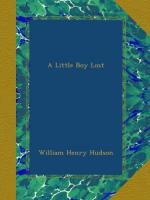When he arrived at the lake three or four spoonbills—those beautiful, tall, rose-coloured birds—were standing on the bank, quietly dozing in the hot sunshine. They did not fly away at his approach, for the birds were now so accustomed to Martin and his harmless noises that they took very little notice of him. He knelt on one knee and pointed the gun at them.
[Illustration: ]
“Now, birdies, you don’t know what a fright I’m going to give you—off you go!” he cried, and pulled the trigger.
The roar of the loud report travelled all over the wide lake, creating a great commotion among the feathered people, and they rose up with a general scream into the air.
All this was of no benefit to Martin, the recoil of the gun having sent him flying over, his heels in the air; and before he recovered himself the echoes were silent, and all the frightened birds were settling on the water again. But there, just before him, lay one of the spoonbills, beating its great rose-coloured wings against the ground.
Martin ran to it, full of keen distress, but was powerless to help; its life’s blood was fast running away from the shot wounds it had received in its side, staining the grass with crimson. Presently it closed its beautiful ruby-coloured eyes and the quivering wings grew still.
Then Martin sat down on the grass by its side and began to cry, Oh, that great bird, half as tall as himself, and so many times more lovely and strong and beautiful in its life—he had killed it, and it would never fly again! He raised it up very tenderly in his arms and kissed it—kissed its pale green head and rosy wings; then out of his arms it tumbled back again on to the grass.
“Oh, poor bird,” he cried suddenly, “open your wings and fly away!”
But it was dead.
Then Martin got up and stared all round him at the wide landscape, and everything looked strange and dim and sorrowful. A shadow passed over the lake, and a murmur came up out of the rushes that was like a voice saying something that he could not understand. A great cry of pain rose from his heart and died to a whisper on his lips; he was awed into silence. Sinking down upon the grass again, he hid his face against the rosy-breasted bird and began to sob. How warm the dead bird felt against his cheek—oh, so warm—and it could not live and fly about with the others.
At length he sat up and knew the reason of that change that had come over the earth. A dark cloud had sprung up in the south-west, far off as yet, and near the horizon; but its fringe already touched and obscured the low-hanging sun, and a shadow flew far and vast before it. Over the lake flew that great shadow: the waters looked cold and still, reflecting as in a polished glass the motionless rushes, the glassy bank, and Martin, sitting on it, still clasping in his arms the dead rose-coloured bird.




